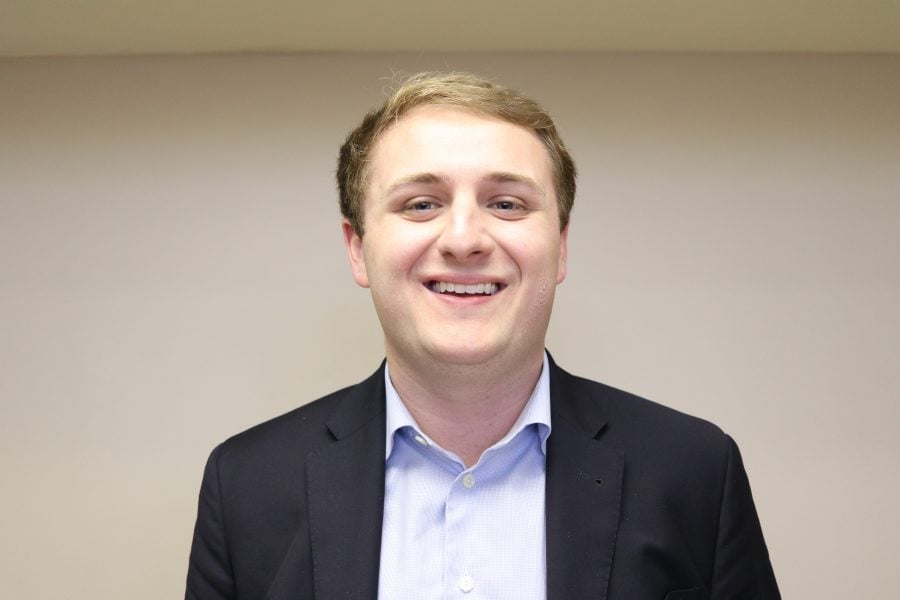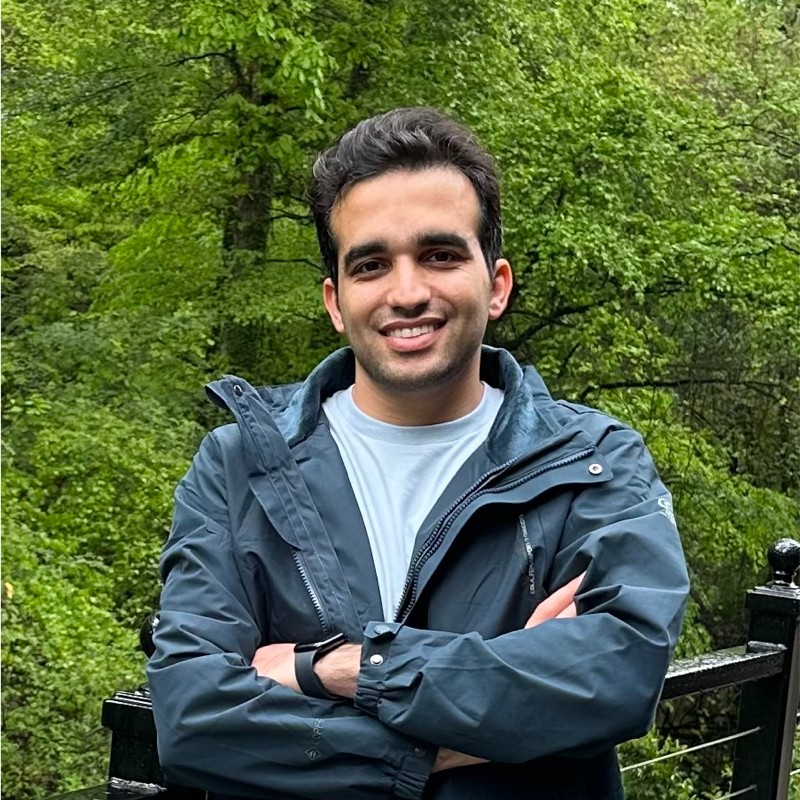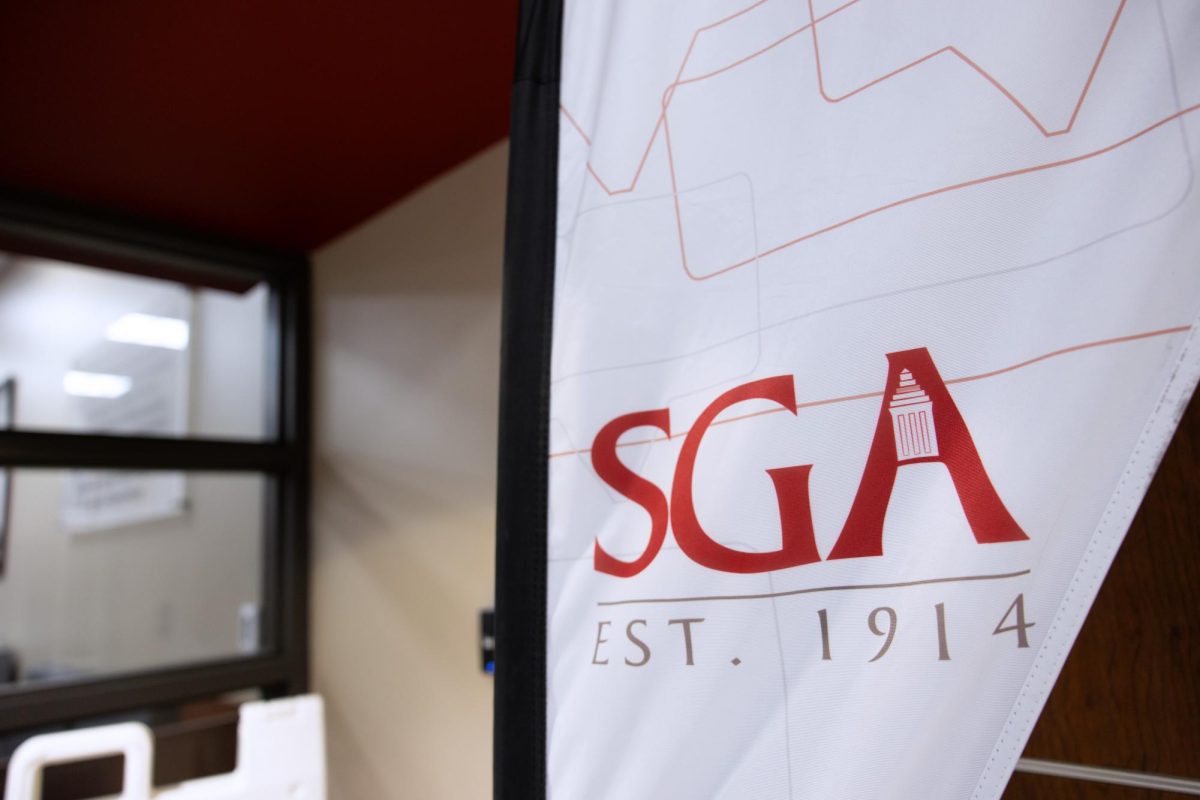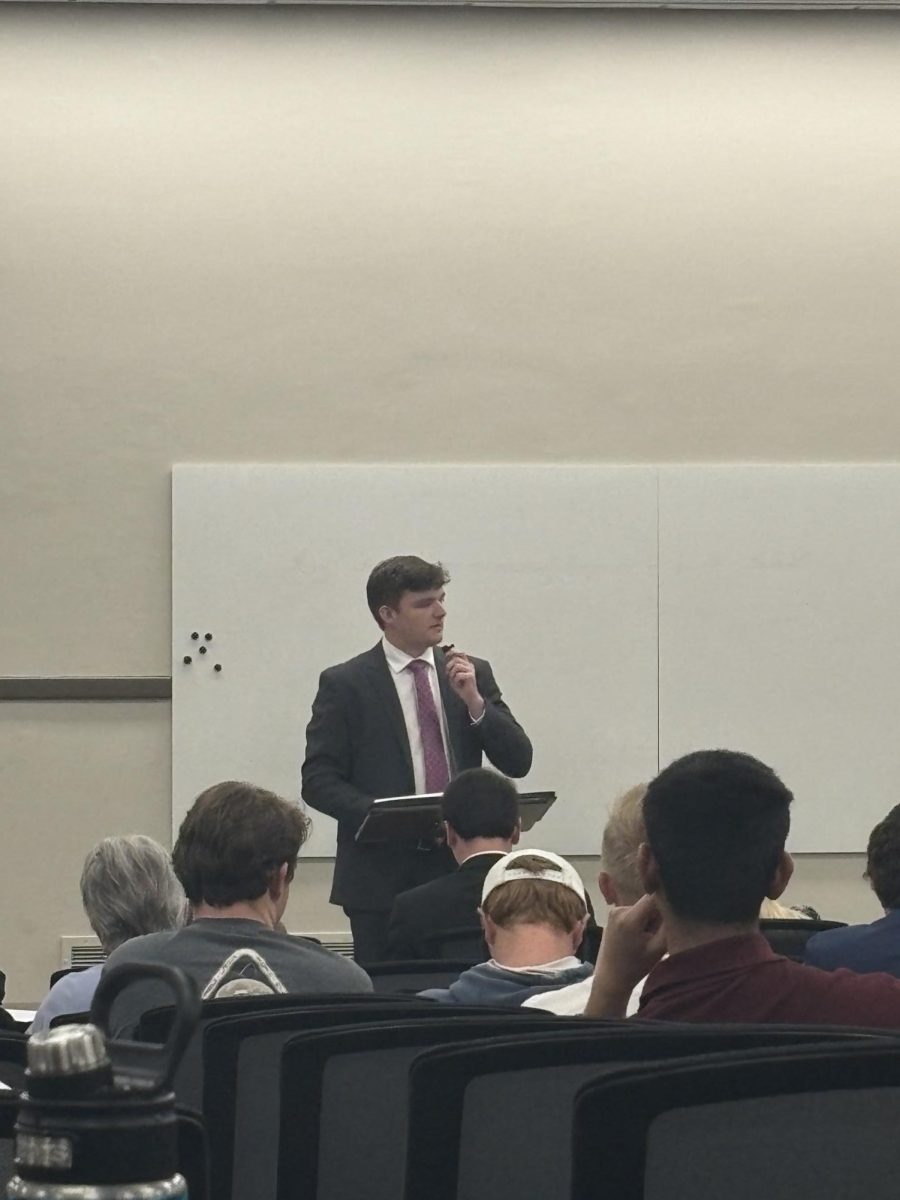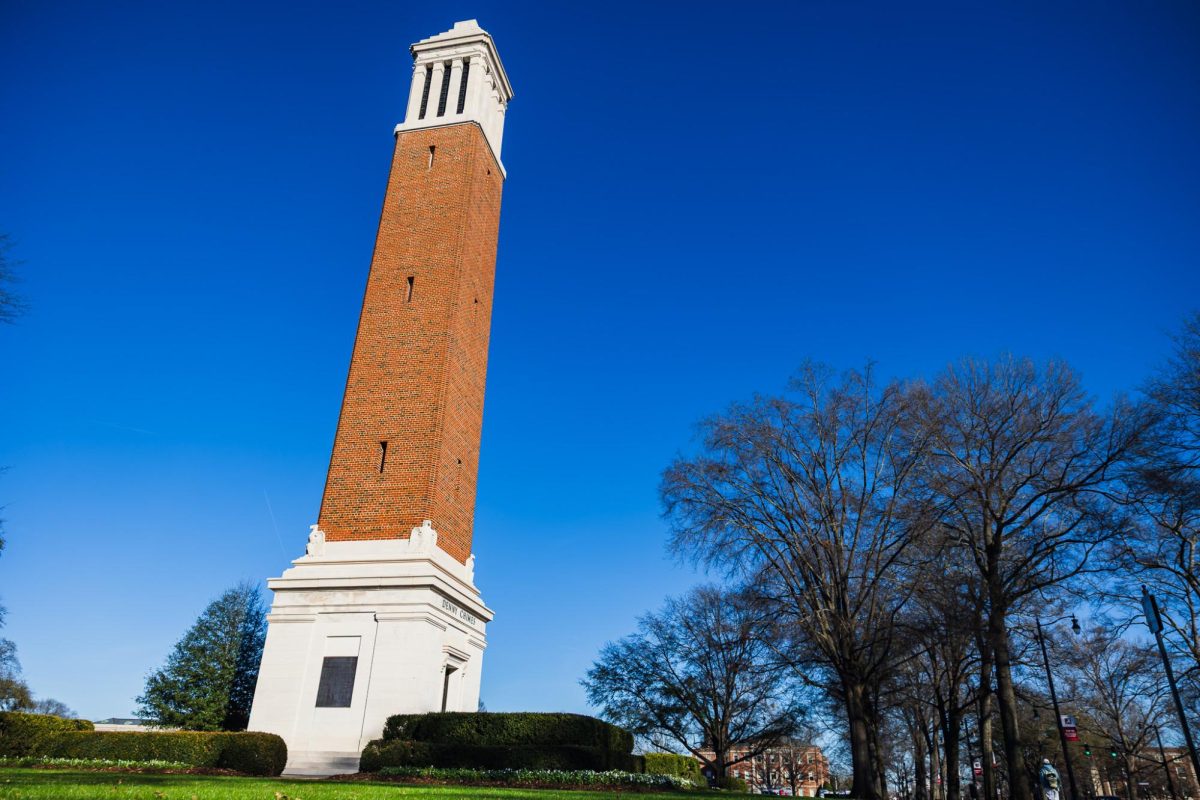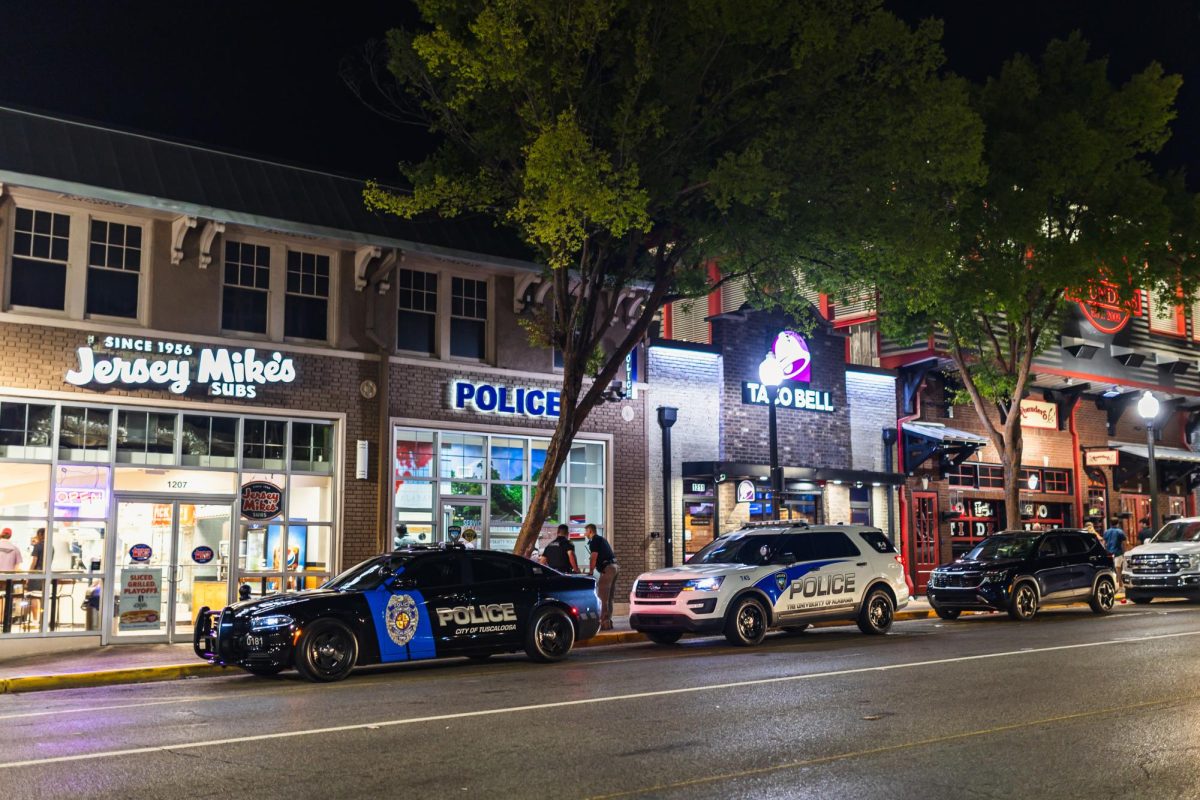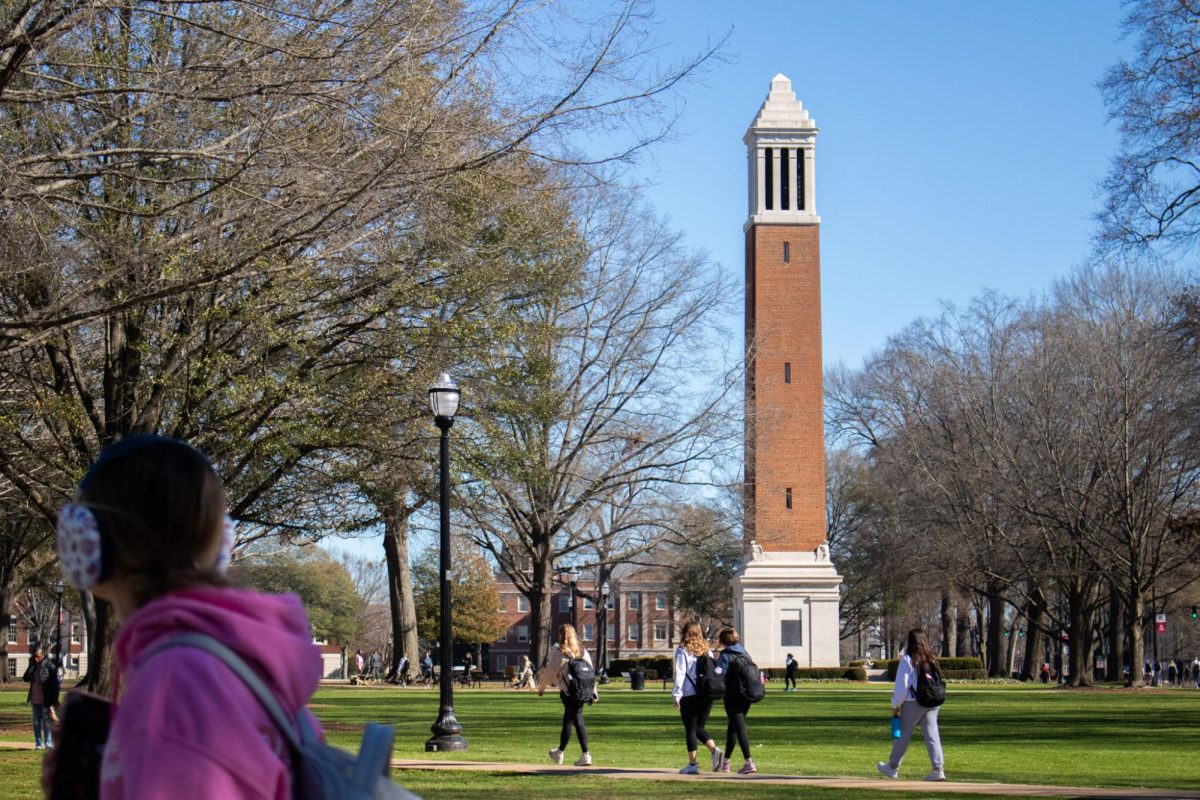Clay Martinson is a sophomore majoring in history from Huntsville, Alabama and he is running unopposed for vice president of student affairs.
Q: How did you originally get involved with SGA?
A: When I was a senior in high school, I applied for First Year Council and I didn’t get it but I kept applying myself. I had friends that were involved. Actually the first thing that I did in SGA was the Senate page program and I paged under Claire Moeller and so I would go and proxy a lot of nights and stuff like that.
What made you want to run for this position?
Definitely, for me, I’ve grown up kind of, like, in a public service environment. My father was school board president when I was – he ran when I was four and then ran again when I was eight and served two terms and so he always kind of instilled in me the importance of public service and using government as a good way to help people. That’s kind of what I want to do in SGA. I think that we have opportunity to make some changes and do some really cool stuff to make our school a better place for everybody.
What makes you the best choice for the office?
I think that my experience working in local, state and federal government helps me know what good government looks like and how we can make that a reality here at UA. I worked for Huntsville Mayor Tommy Battle, state house minority leader Anthony Daniels and Senator Richard Shelby. That group is pretty diverse when it comes to opinions and I think learning to listen to everyone regardless of their stance is something that I have come to develop.
What’s one last thing you want the voters to know about you?
So one of the things in my platform that I’m really passionate about is creating a scholarship fund that goes toward extracurricular activities. This is actually something that’s been implemented by Vanderbilt. It’s called Experience Vanderbilt. It started off as a $50,000 pilot program and it’s grown since and so this is a way for students who have already been identified as need-based, like they’re receiving grants or some sort of need-based scholarship to attend school here. This would be something like, whether it be for honor societies, Greek organizations, intramural sports or really anything, you can apply to this scholarship fund. Hopefully it will have between $10,000 to $25,000 and we’ll randomly select applications. The money will be allocated equally so that each of those sort of like, slivers, sort of those groups. That’s one of my main things.
Another thing is sexual assault prevention, partnering with organizations like Women and Gender Resources and Not On My Campus to make sure that students are well-educated about sexual assault. Having more panels to discuss sexual assault, I think that’s something that we need to do with It’s On Us to really take it to new heights and create better programming and making sure it’s being promoted to all students.
Also, looking at parking reform, working to make sure that students’ voices are heard by the transportation and parking people as well as our SGA. And setting up weekly meetings–well maybe not weekly–but definitely twice a month, something like that with the parking people so that we can voice our concerns and create an SGA parking committee. And then looking to incentivize sports attendance to other sports. With football, if you don’t come to a game and you have a ticket, you’re penalized but we should incentivize basketball, softball, baseball, you know. We can boost attendance and this will further legitimize SGA by working with athletics. And then lastly, a student legal advisory center, where students can go when they get an MIP or public intoxication of SNAP, and they can receive free legal advice.
What’s the biggest problem you see on campus?
I really think that we have a great campus and we do a lot of good things. I think that one of the things we really need to work on, especially as an SGA, is making sure that we’re more visible to students, as a leader on campus. My dad always taught me you should go and meet as many people as possible in your daily life. You should talk to everybody you see and one of things that I would like to see is–like when you’re walking through the quad or whatever,–I mean obviously you can’t really say hello to everybody because there’s so many students, but just kind of saying hello and just wave or something because I think that that’s something that, you know it just promotes overall better relations throughout our campus.



